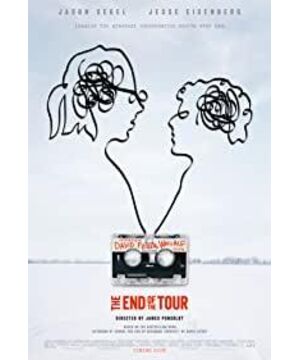Extends to a dialogue in an interview with the protagonist David Foster Wallace:
"A teacher I like very much once said: good novels, their task is to comfort the disturbed and comfort the comfortable. people are disturbed. One of the main purposes of serious fiction, I think, is for the reader—those who, like all of us, have been exiled in isolation in their own brains—to provide an imaginary access to other selves. As a As a human being, suffering from suffering is an inescapable part of our life in this world, so one of the main reasons why we appreciate works of art is to experience pain. "Universal" suffering. In the real world we are always suffering alone, we cannot really experience the suffering of others to the fullest. But suppose we read a novel that makes us feel the suffering of the fictional characters in the book There is a certain resonance, then the experience may strengthen our belief that others also resonate with my pain. The experience has a nourishing and redemptive effect, and the loneliness in our hearts is alleviated as a result. The truth may be It's that simple.
But here's how it goes: TV shows, hit movies, and most of the "low" art -- "low" is anything whose primary purpose is to make money -- makes it feel more acceptable, The reason behind this is precisely because their makers clearly realize that audiences are more willing to accept a work that provides 100% pleasure than a work that is 49% pleasure and 51% pain. Whereas "serious" works of art - those whose primary purpose is not to make money from you - tend to upset you, or force you to experience pleasure by putting in a certain amount of effort, just as life itself is Consistent: Pleasure is, for the most part, a by-product of toil and inconvenience. So regular readers, especially younger readers who have grown up accustomed to reading works that are easy to accept and offer 100% pleasure, will find it very difficult for them to read and appreciate serious fiction. This situation is bad. The root of the problem is not that current readers are "stupid", but that television and commercial culture have trained people to be lazy and naive to the point of lowering expectations for works of art. Under these circumstances, it has never been more difficult to get contemporary readers to fully use their imagination and intelligence to accept your work. "
View more about The End of the Tour reviews











